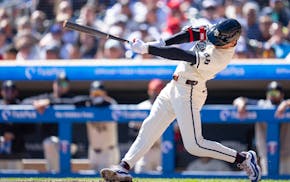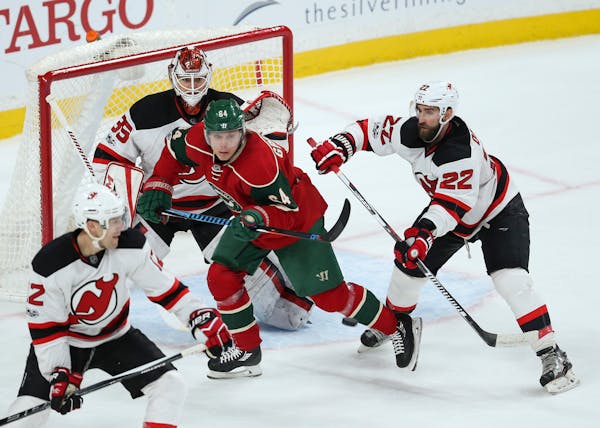Stop me if you've heard this one: A lot of people are intrigued and/or genuinely excited about the Timberwolves and their prospects for the upcoming season based on summer acquisitions. They are less excited about the Wild, who look to have much the same team as in previous years.
Then the respective seasons start for both teams and you remember: oh, yeah, the Wild has a lot of good players already. The Wolves tantalize with potential but fall short of expectations. The year ends with the Wild in the playoffs (five years in a row) and the Wolves in the lottery (13 and counting).
The 2016 offseason was a turbo-charged version of that, with many of us (hand raised high in guilt and shame) believing Tom Thibodeau's coaching would be enough to turn a 29-win team into a 45-win team. (Narrator: It was not enough). A lot of us undervalued the Wild's own coaching change (Bruce Boudreau), imaging he was taking over a leaking ship destined to slowly sink.
Then the Wolves won 31 games and the Wild had its best regular-season in franchise history. The subsequent five-game playoff flop for the Wild should not diminish the 82 games that preceded it.
If last year at this time was a turbo-charged version of the Wolves optimism/Wild neutrality summer theme, then this year is all of that plus rocket fuel and energy drinks (which might in fact be the same thing).
The Wolves traded for Jimmy Butler, then signed Jeff Teague and Taj Gibson. They figure to have their best starting five since the Kevin Garnett era and are a trendy pick already to be a factor in an insanely good Western Conference.
The Wild? The big trade was a salary dump of Marco Scandella and Jason Pominville to Buffalo for a couple of third-line forwards. The free agent frenzy has been a bunch of low-cost players on two-way contracts, predicated on the idea of building up depth. The cap space they cleared is mostly dedicated to paying Nino Niederreiter and Mikael Granlund.
The Wild's roster largely is what it is because of past decisions on high-cost players on long-term contracts converging with younger core players needing to get paid.
But having a lot of players you want to keep is not necessarily a bad problem to have. It's just a condition that leads to a bit of inertia.
Basically, the question this offseason is: The Wild doesn't seem to be getting any better, but is that good enough?
This was a team, after all, that ranked among the NHL's best for three-fourths of last season. The largest recent sample size says the Wild can be an elite team with essentially its current roster, but the pessimist can also point to the late-season slide or wonder if the Wild flat-out overachieved when it was looking so good.
If you're betting on either the Wild or Wolves to win a title this year, the Wild is still by far the more likely champion. What's fascinating is both the Wild and Wolves have the sixth-best odds — SIXTH! — of any team in their respective leagues to win a title next year per this site. But the Wild is at 14-to-1 in a more wide-open NHL and the Wolves are at 33-to-1 in the top-heavy, Warriors-dominated NBA.
For all the offseason buzz in one direction and lack thereof in the other, there's still a reasonably good chance the Wild wins more games than the Wolves next season.
One is a good team trying to stay good. One is a bad team trying to get better. We know which route is potentially more interesting and fun, but we also know which one tends to get to the finish line in better shape.

Live: Minnesota United at Charlotte FC. Follow on Gameview.
Jameson Taillon comes off the injured list and helps the Cubs beat the Marlins 8-3
T-wolves take NBA's best defense into series vs. Suns, but can it stop Durant-Booker-Beal trio?

